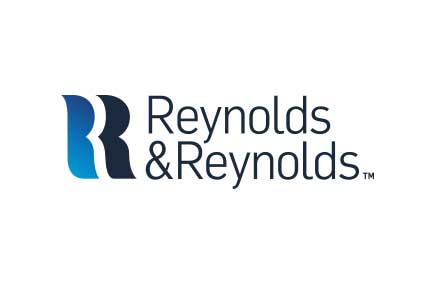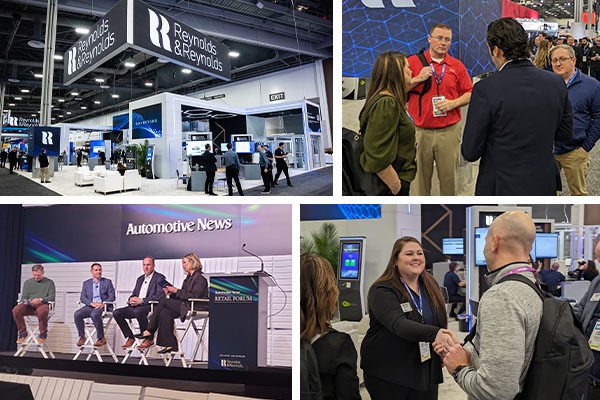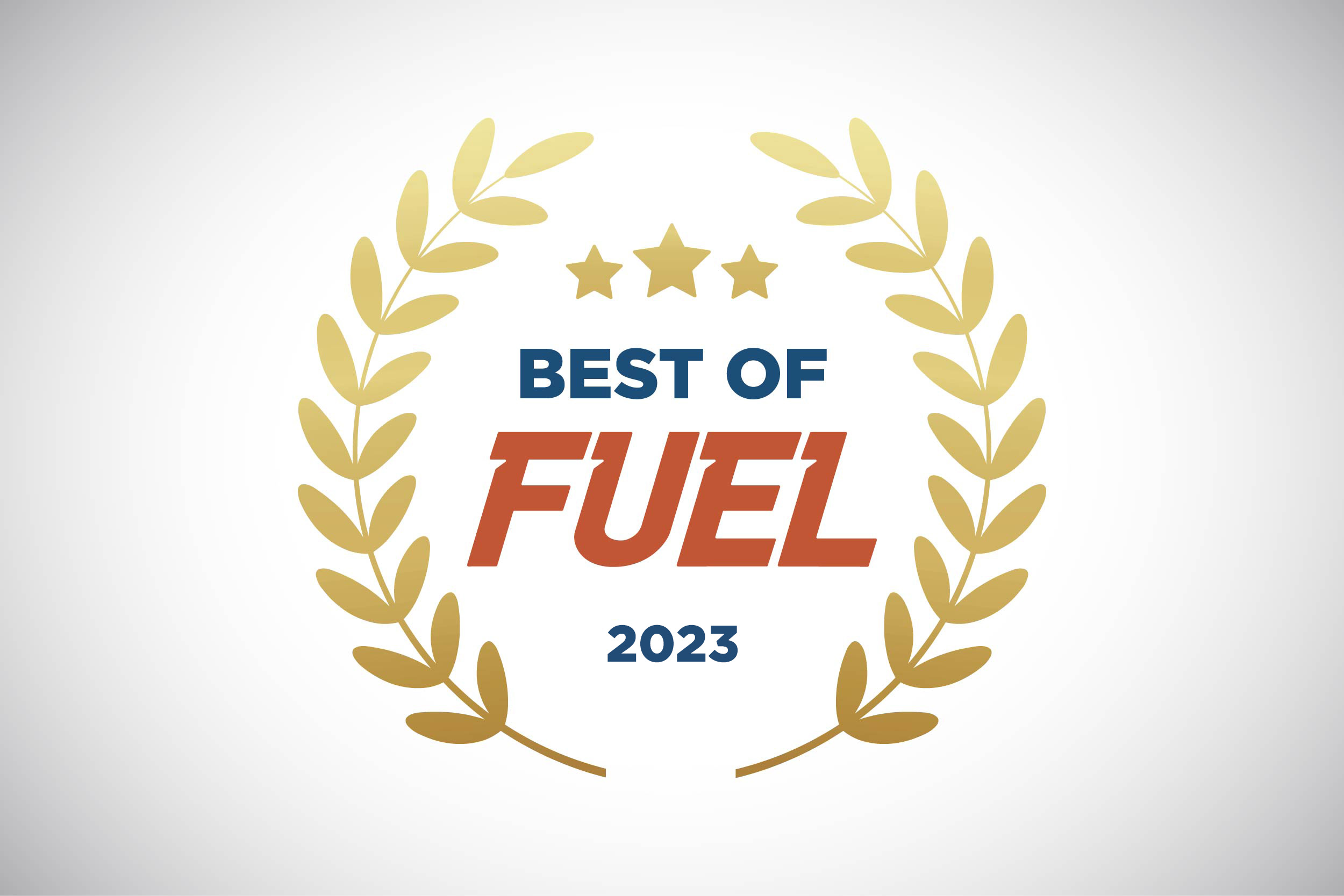Anticipating Consumers’ Vehicle Needs after COVID-19

Article Highlights:
- How will consumer demands change as the economy slowly opens back up?
- What steps can dealerships take to find and meet these demands?
In this episode of Reynolds’ video podcast, Connected, Craig Lawson, sales director at Naked Lime Marketing, discusses what the market will look like post-COVID-19, and how dealerships can prepare their marketing strategy.
Greg Uland: Hello, I’m Greg Uland, marketing director at Reynolds and Reynolds, and this is Connected, the podcast with best practices and ideas to help navigate what is happening in the automotive retail industry and the world today. As the COVID-19 virus continues to change our world and how we live and work daily, this podcast discusses ways to continue operating in this unprecedented social environment.
On today’s episode we have with us Craig Lawson, sales director at Naked Lime Marketing. Craig, thanks so much for hopping on.
Craig Lawson: Yeah, Greg. Thanks for having me.
GU: Absolutely. Craig, this week and looking into next week, we’re starting to see some states open up things and try to get on a road to recovery. So today I’m hoping to talk about what’s next. Where do you see things going over the coming weeks and months?
CL: That’s a tough question. I don’t think there’s a single person alive that can truly answer that question. But we do know there is going to be a next. I mean, that’s just a fact. We will continue to experience the same environment that we’re in and all the questions are obviously going to be answered. As the economy stabilizes, vehicle sales are going to follow. I’ve learned a long time ago not to bet against the auto industry or the operators in the auto industry. So if you think about any of the trends, you’ll see that automotive always follows and it’s a trailing indicator of the economy. It falls fast, but man, we sure know how to rebound.
So the reason that happens is the type of need that a vehicle is. And there really are three needs, Greg, right now coming out of this that are going to be super important. So you’ve got the first, revolving needs. People are going to need to go to the grocery store. They’re going to want to go out to eat. They’re going to want to get back out and go dining and things like that. People are always going to have a need for the staples and they’re going to have need for food. This is just a fact. How quickly that industry recovers is going to depend on how it reopens. If the dining industry or restaurant industry in general, if they open it up too fast, we’re probably going to have the economy shut back down. But can a restaurant make the kind of money or margins that they need to if their dining room is only half full? So those types of industries are probably going to continue to come out of this a little sluggish. And really, that’s the great big question mark.
The next type of need is a leisure need. So spa appointments, the movie theatre, all of the things that you like to do to entertain yourself. Those types of things are very easily canceled. Technically, no one really needs that. I know I’ve seen a lot of memes about coronavirus haircuts, and unfortunately this is my haircut all the time, but if you look at those types of needs, those are easy to put off. And to be honest, it depends on your financial stability, whether or not that need comes back.
The next type of need is a deferred need. And that’s where vehicle sales and vehicle service fall. Most people don’t buy a vehicle on a whim. It’s a highly researched item. They’re doing all of this research online. Typically, they’re surveying their friends on social media, all of the things that we all personally see. But there is that idea that if somebody is doing that, a purchase is imminent. We need a car. If you need service right now and you’re afraid to go to a dealership, you’re going to service your car when this is over. If you were in the middle of a buying cycle and your state was shut down or your job was taken away or whatever the situation, you didn’t suddenly stop needing that vehicle. You still need it. So that pent up demand is going to put us in a fantastic position as things begins to open.
GU: The big question is, how do you find those people? As a dealership, how do you proactively approach those people? Everybody’s going to try to be sensitive with their advertising, hopefully, coming out of this. So how do you pinpoint those folks that you know are ready and can buy?
CL: I think step one is going back to the day that you put your sales department on the back burner to take care of your stores and your customers. You had a list, right? You were working equity leads, you could lower somebody’s payment. You had people that were prospects in your CRM tool that you were actively marketing to. Those people that had open prospects before the pandemic, that’s probably step number one for the sales department.
But more importantly, when you begin to look for new opportunities, you have to realize that there are whole segments of the economy that have been super negatively impacted. There are also, conversely, people who’ve honestly made money on this pandemic. If you’re in financial services, if you’re an accountant, CPA, if you’re in the construction industry, those projects didn’t seem to stop. So for those people it’s kind of business as usual. There’s a whole lot of unemployment out there. But what we fail to realize is really about 85% of the workers are still working. They’re still being paid in some way, shape, or form. So financially, those people have not been touched.
The other side of this is the people that have been overworked. Take your doctors, your nurses, your hospital support workers, your delivery workers. You know, every day there’s a story about the Amazon employees that are just about to catch fire to the building because they’re feeling neglected. Grocery store workers, those people are probably working more hours than they ever have. They’re going to be your tired consumers that are going to take a minute to come out of the fog, but they’re going to come out of it in a much better financial situation.
So when you look at the profiles that are around your store and you look at the data that tells you what kind of market you’re serving as a car dealer, that data is very specific and going to tell you exactly what you need to know, who you need to target, and who you need to talk to.
GU: Very good points. I appreciate you bringing that up. Craig, I don’t want to keep you too long. I really do appreciate you taking some time out of your day to chat and talk through some of this stuff. But before we go, and while we have the audience, is there anything else you want to touch on or anything you want to say?
CL: Greg, I think it’s important to know that the empathy that we’re seeing out of some industries, that type of marketing is going to help car dealers come out of this. I don’t think you can put on your best suit, walk out and smile and say we got another deal just like this: $10,458 off of Model X. I do think that it’s going to take a very specific type of marketing, and I think it’s going to take a very specific type of channel. So that ad context is going to become ultra-important. Your social media, everything that you’re doing to showcase how you’re opening slowly, the precautions you’re taking to make sure that your customers are safe, are going to go miles and miles and miles down this road.
I’ve been looking at some existing customers of mine. I have a major city, a top five city in the United States, and I have two customers that are identical brands on the north and south side of that city. And I’m watching what’s happening in that area. One guy is down 30% of where he was last March. The other guy’s down more than 60% from the March before. When you really dig into the data, which I have, and you find out the incomes in those different areas and—not that a lower income always equals a more transient job or somebody who is more likely to be laid off—but there’s a pretty good connection there.
So if you’re the guy who is down more than 60%, unfortunately, I think you’re going to have to start looking at some of the areas around you that are still within driving distance. I’m not saying go crazy and try to conquest the other side of a major metro market, because people aren’t going to drive through it to get to you. But I do think you have to start to look at the zip codes that are less affected areas. You have to do that for your own good. You need a partner that’s going to obviously help you do that.
I would encourage you to have those types of conversations with whoever you’re doing business with. Ask those types of questions. If they can tell you how other dealers are doing and then compare, and then dig in to find the root cause. If you’re down a lot and someone else is down a little, that’s not a normal thing. So you need to look into that and figure out how your strategy needs to change coming out of this.
This has been one of those times where you’re proud to be in the car business and you’re proud to serve auto dealers and you’re proud of the industry that we’re in, because I know nobody’s fought harder to become essential businesses. Nobody has really fought harder to earn the respect of the consumer than the car dealers today in this environment, in my opinion.
GU: I agree with you. I definitely do. Craig, thanks again for coming on. I really do appreciate you taking the time.
CL: Yeah, absolutely. Thanks for having me. Appreciate it.
GU: Have a good one. This has been Connected. Stay safe and we’ll see you on the next episode.
Continue to tune in often to see new episodes on best practices and tips for navigating the automotive industry during this unprecedented time.
Related Articles:
Get the most out of your Reynolds investment. Do you want to learn how to use your system more efficiently? Reynolds Software Education has training…
NADA is always a busy, boisterous event – multiply it by 10 when you’re in Vegas. As I walked around the show talking with dealers,…
Picture this: a customer comes in to your store to buy a vehicle, they find the one they want, they go through the entire process…
If the past has proven anything, it’s that dealerships are able to remain strong and adapt to whatever comes their way. 2023 has been no…



















